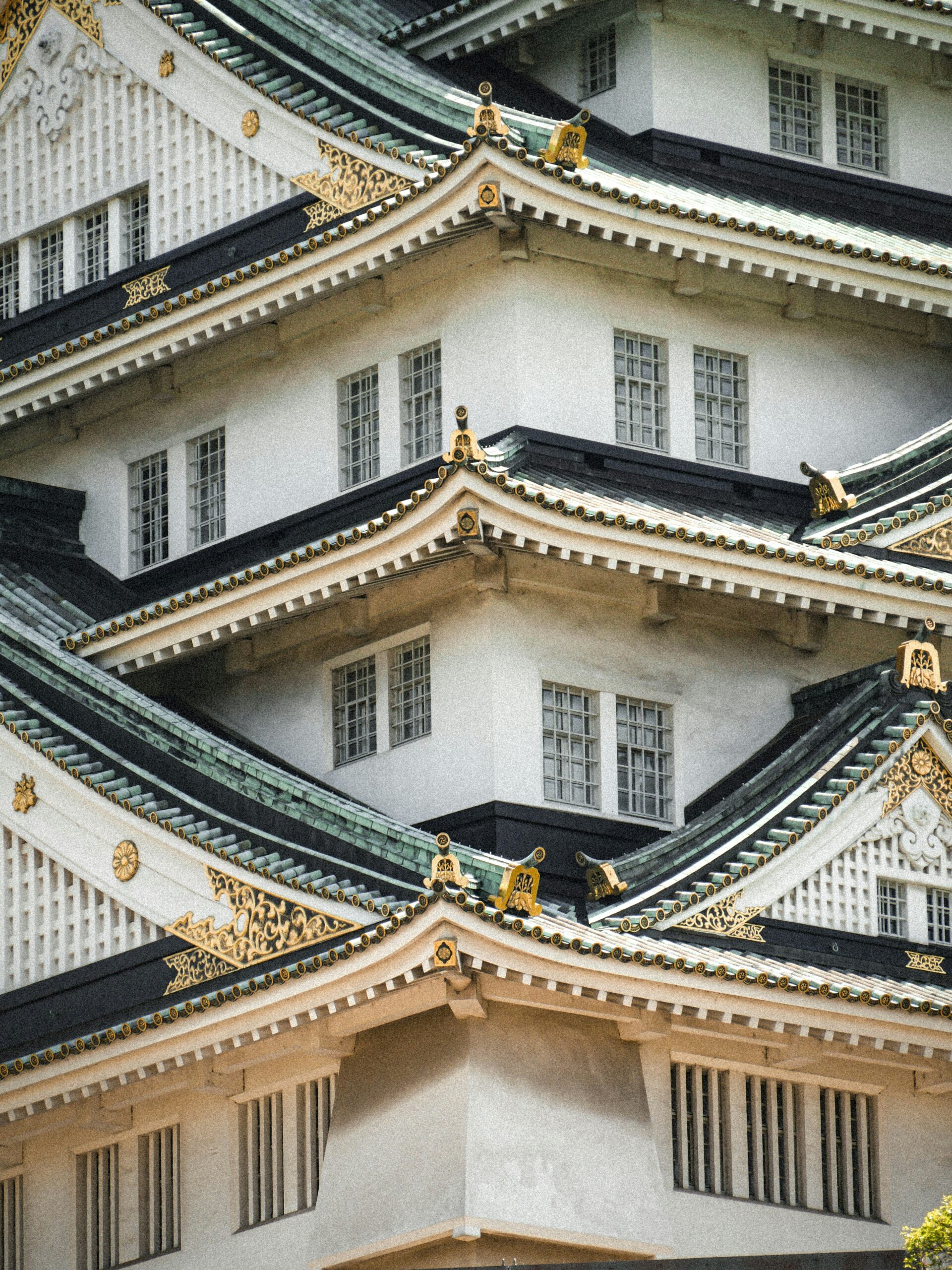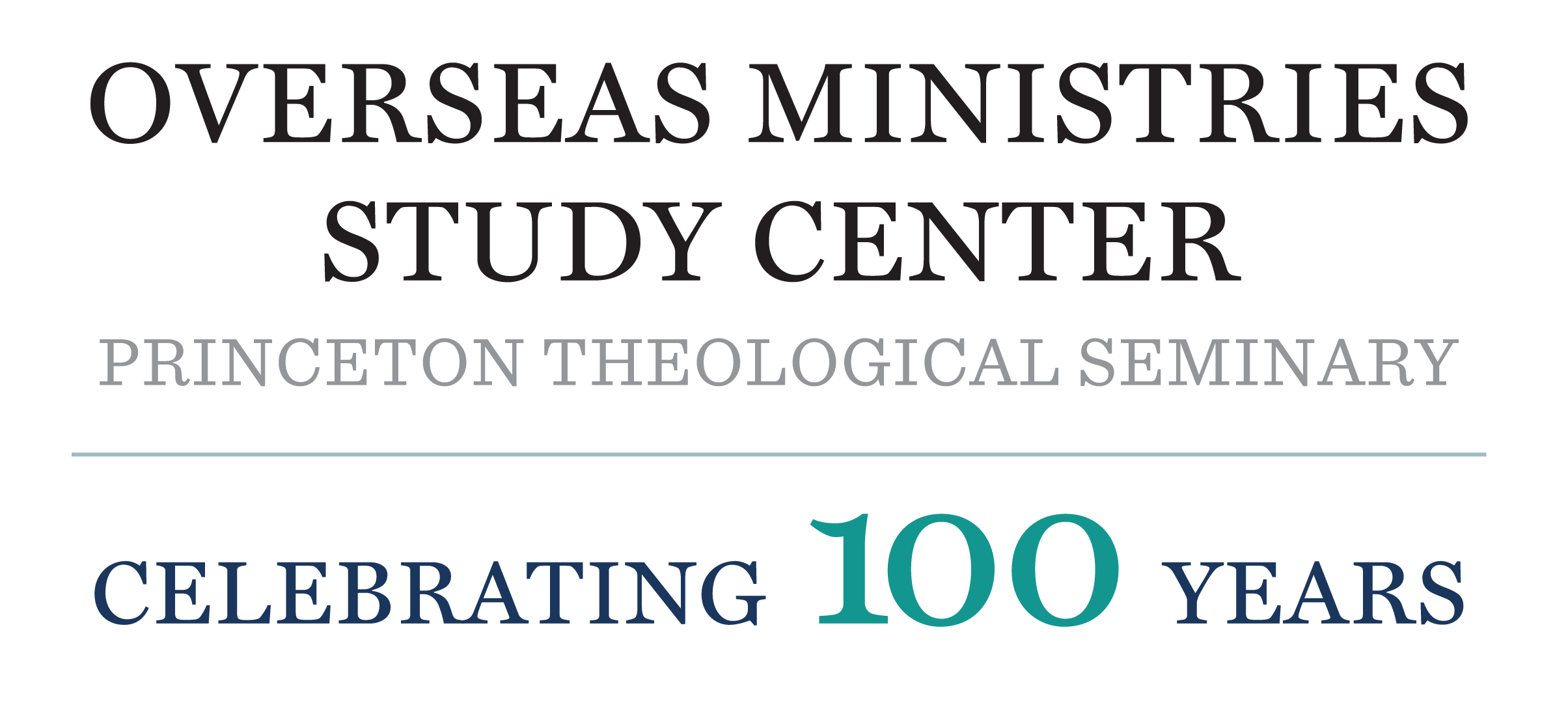By Yutaka Morishima – Aoyama Gakuin University, Japan.
 Dr. Yutaka Morishima is a professor and university chaplain at Aoyama Gakuin University in Japan and a visiting scholar at OMSC in Princeton Theological Seminary (2023-2024). The subject of his Ph.D. dissertation was the Atonement Theology of P.T. Forsyth. He has served as a Protestant church pastor in Nagasaki, where the atomic bomb was dropped. His recent research is on the ideological history of human rights, especially the formation process of a unique human rights concept in Asia. In particular, the use of terms such as “human rights” and “peace state” in political documents is demonstrated to support the concept of Japan’s national polity, shedding new light on the formation of modern imperial ideology.
Dr. Yutaka Morishima is a professor and university chaplain at Aoyama Gakuin University in Japan and a visiting scholar at OMSC in Princeton Theological Seminary (2023-2024). The subject of his Ph.D. dissertation was the Atonement Theology of P.T. Forsyth. He has served as a Protestant church pastor in Nagasaki, where the atomic bomb was dropped. His recent research is on the ideological history of human rights, especially the formation process of a unique human rights concept in Asia. In particular, the use of terms such as “human rights” and “peace state” in political documents is demonstrated to support the concept of Japan’s national polity, shedding new light on the formation of modern imperial ideology.
Editorial Introduction: For the last few weeks, we have published a series of essays by Dr. Yutaka Morishima, an OMSC global partner this academic year. We wanted to feature these essays sequentially in a longer piece, and this is the concluding section of the history of Japan and its relationship to Christianity. You can read the part III here. In these essays, Dr. Morishima explores the onset of Christianity in Japan, its impact on Japanese society, and how certain policies shaped the contours of the faith. We hope you enjoyed exploring how Christianity unfolded in this nation’s history and its consequences to the present. – Stephen Di Trolio, Managing Editor of The Occasional.
Another dimension the Meiji government feared was the concept of human rights held by the West. The notion of “natural human rights,” nurtured with the influence of Christianity, claimed that “all men are born with equal rights.” This posed a problem in Japan because it would treat the emperor equally to fellow humans. In addition, this idea asserted the right to resist oppressive government and the right to revolution, as described in the Declaration of Independence in America. The Meiji government, therefore, created a concept of human rights unique to Japan. I call this “Emperor-style Human Rights” because this right is based and formulated in relationship to the Emperor.
Interestingly, these human rights were necessary to establish the Meiji government army. The Meiji Reformation was carried out by the samurai of the Satsuma and Choshū clans, but their loyalty was to their clan lord, not the emperor. Therefore, the Meiji government needed to form an army loyal to the Emperor. So, they announced a new military conscription but failed to gather samurai into their army. Principally because the samurai under this new system had been made equal to the peasants. The Meiji Reformation effectively dismantled the previous class system. Opening the possibility of samurai becoming subordinate to peasants. Even theoretically, this was unbearable to them.
The government then made its appeal to the peasants. The wording of the appeal included the term “human rights,” which the Government used for the first time.
“As a result of the Cabinet Restoration, control over the territory of the feudal domains was returned to the emperor, along with the registration of the territories and populace,… the Four class people finally gained the right to freedom. This is a way to make the top and bottom classes average and human rights the same, unifying the samurai and the peasants. Henceforth, the samurai are not as before, nor are they peasants; they are ordinary men of the Imperial kingdom, and there is no distinction of social status in their attitude of service to their nation.”
Chōhei no kokuyu [Proclamation of Conscription]
The government proposed that human rights meant making the “top and bottom average.” Yet this is not equality. Instead, it is the averaging or leveling of society. It does not recognize individuality; all are the same across the board. When you visit Japan, you will find that the Japanese value uniformity or harmony. They wear similar clothes, sport similar hairstyles, and act in the same manner. Japanese find it comforting to fit in with everyone else. This idea goes back to the ikkun banmin, the concept of equality. It means serving one lord (emperor), regardless of class differences. Equality, in this sense, is equal loyalty to the same lord. It means there is no class distinction to fight for the Emperor. If someone lacked loyalty, they were treated inhumanely. For example, these people would be called hikokumin (unpatriotic) during World War II, and today, they would be called baikokudo (traitor). This is because loyalty, in this case, means not opposing the emperor or the imperial system. Those who criticize the Emperor and the imperial system are called traitors by right-wing ideologues who place importance on the imperial system. This is primarily due to the fact that they are seen as destroying the national polity centered around the Emperor. In other words, Japanese equality does not refer to human dignity but has its standard in undeviating loyalty.
The right of resistance does not work in Japan’s human rights system. The right of resistance originates in the existence of a being (God) superior to an earthly ruler. However, in Japan, the ruler is a divine being, so the concept of the existence of a being superior to the ruler cannot be found. Japan called this idea of equality “human rights,” but I call it “Emperor-style Human Rights.”
Christianity could not oppose this idea either. Christian leaders felt obligated to obey the emperor and hold him in high esteem. Since Christian faith was not permitted during the Edo period, freedom of religion was secured in the Meiji period. Consequently, Christians loved and respected the emperor, who officially allowed the worship of the Christian faith in the nation. Moreover, worshipping the Emperor, cultivated through Japanese culture and education, would influence Christian leaders.
Fast forwarding to the Second World War, the emperor was seen as the messenger chosen by God. For example, the Christian church faced severe persecution during World War II under the pretext of being an American religion, yet they defended the Emperor after the war. During the war, Christians were asked, “Who is greater, Christ or the Emperor?” Those who answered “Christ” were arrested and imprisoned for their loyalty to their faith. However, despite the severe persecution suffered under the imperial system, Christian leaders remained loyal to the Emperor. When asked by senior officials of the General Headquarters after the war what they would do if the Emperor were sentenced to death for war crimes, they responded by saying, “If such a thing were to happen, I would be the first to die,” thus defending the Emperor.[1] This exemplifies fidelity to the emperor and how it has permeated the Japanese people. In this way, the government made ambiguous the belief in God by worshiping the emperor and suppressing Christians in previous periods.

Many Japanese believe that the structure instituted by the Meiji government was dismantled with the Human Declaration, which was an imperial rescript issued by the Emperor that the emperor was a man and not a god. However, this structural principle made about religious policy during the Meiji government was eventually preserved by the GHQ and is regaining life today.
GHQ’s primary purpose was the democratization of Japan and a smooth post-war occupation. They aimed to establish freedom of religion and eradicate State Shintoism, which placed the Emperor in the position of the highest deity. However, there was a conflict with GHQ’s occupation policy. GHQ always planned to utilize the emperor system. The emperor’s influence as a religious being was essential to a smooth occupation policy. Therefore, they preserved the religion of the emperor as a private religion.
Moreover, GHQ wanted to dismantle State Shintoism because they understood that it was used as a tool of ultra-nationalism and a disguise for militarism. However, the GHQ’s process of recognizing State Shintoism as a religion would violate the principle of freedom of religion because it would be unacceptable to eradicate a religion through national power. Instead, the GHQ made State Shintoism non-religious, calling it a “non-religious national cult.” This was the same logic employed by the Meiji government, which worked to make it into a “culture, not a religion.” In the end, the emperor’s religion and the shrines survived due to the policy of freedom of religion. The emperor’s system was maintained, and the religious policy created by the Meiji government remains to this day.
An explanation of Japan’s Constitution at the Diet explicitly clarified that, “in the case of constitutional reform, Japan’s national polity would not change.”[2] Namely, a Western-style constitution was set in, but the essential Japanese spirit of national polity remained the same. There is no trace today of MacArthur’s post-war Christian policies and the Christian boom that occurred during the occupation of Japan. Instead, what was emphasized was the restoration of the ancient Japanese spirit in terms of national polity centered around Emperor. Previously, Japan’s national polity, which was maintained at a spiritual level after the war, now has a movement to turn it into legislation. The draft for the constitutional amendment by the ruling party (the Liberal Democratic Party: LDP) expresses this. The current Constitution Article 97 states the following concerning the fundamental human rights:
Article 97 of the Constitution of Japan
The fundamental human rights this Constitution guaranteed to the people of Japan are fruits of the age-old struggle of man to be free; they have survived the many exacting tests for durability and are conferred upon this and future generations in trust, to be held for all time inviolate.
The LDP’s draft for the constitutional amendment suggested the deletion of the full text of Article 97. The reason is explained as follows: “The regulation of human rights needs to consider the history, culture, and tradition of our nation. The regulations of the current Constitution have in them regulations based on Western thought of a natural human rights. Therefore, such regulations need to be modified.”[3] Human rights based on Japan’s history, culture, and tradition are referred to as the “Emperor-style Human Rights”. This expresses the concern regarding the influence of Christian thought on the Japanese national polity. Isozaki Yosuke’s words, who was a member of the LDP at the time and carried the responsibility for this amendment draft, proves just this:
One thing we also observed this time is what we call the theory of natural human rights. We’ve learned, as you might recall, that human rights were acquired through the so-called European civil revolutions. At that time, the wording was that these rights were originally natural rights given by God. This aspect is present in the Japanese Constitution as well. However, it’s not the God of Japan, needless to say, given by the God of Christianity. Japan is Shinto and Buddhism, so why should we adopt the theory of natural human rights granted by the Christian God? We decided to cut all. There is Article 97; we deleted it completely. Although we dropped one article, we didn’t want to attribute human rights to be given by Christian God. We thought about that aspect as well.
As clearly stated here, the government seeks to create a constitution based on the Shinto framework rather than Christianity. This is intended to establish the national polity centered around the Emperor legally. The emperor is a religious and political figure, who is considered a descendant of the sun goddess, as established by the Meiji government. As previously mentioned, Christianity has been suppressed through cultural policies because it is considered a dangerous ideology for this national polity and various cultural policies made it concrete in people’s lives. In other words, the statement above implies that the political intent to suppress Christianity from spreading is still being upheld today. Moreover, in the entry regarding freedom of religion in the draft of the constitutional amendment, it is forbidden that the state or any public organization adopt or promote any specific religion. However, there is an exception: “This shall be excluded in case of social ceremonial or customized conduct within their scope.” In other words, the primary line laid out through the religious policy by the Meiji government is still in effect. So then there is the question of what the Christian church of Japan should do. The most important thing is to know and spread the notion that transcends our nation and culture. We can accomplish this idea with the word of God. So, to answer this, we need more of the ” fruits of the age-old struggle of man to be free (Article 97).”
If you are interested in learning more about this work, please see Dr. Morishima’s writings in Japanese, entitled “The History of Thought on Resistance Rights and Human Rights: A Clash of the Western and Tenno (Japanese-Emperor) Style.”
[1] Also known as the GHQ, which were American occupying forces after World War Two.
[2] A “Diet” is a legislative assembly in Japan. “Polity” refers to Japan’s natural tendency to unite people around the divine Emperor.
[3] Jiyū Minshutō(LDP), Nihonkoku Kenpō Kaisei Sōan Q&A Zōho-ban [Draft Amendments to the Constitution of Japan: Q&A, Expanded Edition], (Tokyo: Kenpō Kaisei Suishin Honbu, 2013) p.13.



